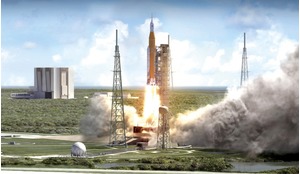“We have so many problems on this planet to solve, why do you want to explore the universe?” An exemplary and often-cited question, just as technology steers us ever closer to the stars. We need to find solutions for keeping planet Earth and humanity alive, whilst at the same time working to narrow the ever widening gap between the growing number of people in existential need and the few living in abundance. One logical proposal is to shift our contemporary mind set and make technology our friend. Martine-Nicole Rojina suggests that this seems to be the next evolutionary expression of life - to assist our consciousness in understanding, exploring and upgrading our existence on Earth and in the universe. Understanding the human condition is essential for future long-distance space travel.
We are human and humans seem to have built-in flaws. In various isolation experiments, where a small group of people live together in a restricted environment to simulate longer space travel or life on possible future off world colonies, repeating and challenging traits in human behaviour emerge, just as they would in regular Earth-bound society.
No matter the initial constructive and productive mind set and the profound will to leave this experiment with “best friends for life”, after about six months the larger group begins splitting into sub-teams. Personal ‘affectations’, initially reported sympathetically, soon become perceived as nerve wrecking and annoying.














